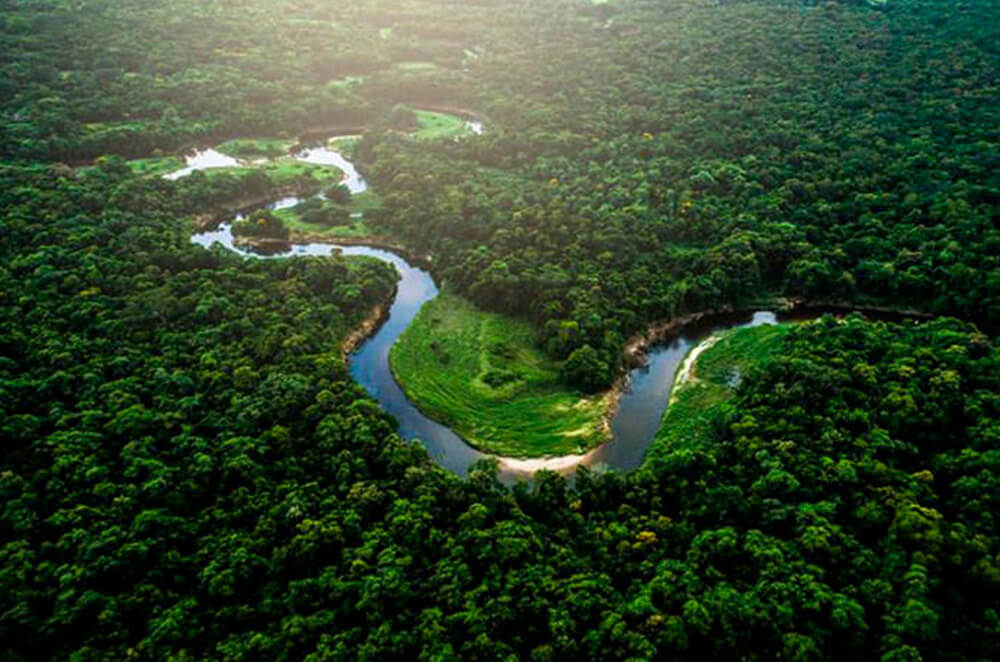Every year, 3.2 billion trees are cut down to make paper packaging or fabrics such as rayon and viscose. It’s a chilling number, but one that can be slashed with innovation and will.
In recognition of World Rainforest Day 2023, this post highlights what rainforests do for us on a daily basis, and why we can’t survive without them. Plus, we feature Canopy and how they are partnering with companies to protect our forests.
We need rainforests because:
- They lock up vast amounts of carbon and moderate local temperature. When trees are cut down, the carbon they store is released back into the atmosphere as CO2.
- Without them we won’t be able to limit global warming to 1.5°C. We need to cut emissions from forests to net-zero by 2030 or 2035, and start restoring and protecting our rainforests at an accelerated pace.
- Forests like the Amazon or the Congo Basin are gigantic reservoirs of biodiversity and homes to millions of people.
- They influence rainfall and weather patterns at regional and global scales. The Congo Basin, for example, influences rainfall patterns as far away as North Africa.
- If an ecosystem like the Amazon fails and turns into a savannah the effects of its disappearance will be catastrophic for all society.
Tropical rainforests have an outsized role in maintaining balance in the world as we know it. Yet, despite their critical importance, they continue to be cut down for various reasons.
Agriculture and livestock are amongst them, but so is the production of paper and paper products. Vast areas of rainforest in Sumatra, for example, have been logged and converted into fast-growing single species plantations used to produce fiber for wood-pulp and paper.
Responsible sourcing, more recycling
As a society, we have begun to step away from single use plastics. And that’s good news. But it’s also putting our forests in danger as more companies turn to tree fiber alternatives. In these cases, organizations like Canopy can offer more circular solutions.
Canopy is an environmental not-for-profit that works to protect the world’s forests, species, and climate. They have several initiatives through which they help different companies find better ways of making and packaging their products.
Pack4Good, for example, is dedicated to shifting the global paper packaging supply chain to protect the world’s most high-carbon, high-biodiversity forests. Canopy partners with hundreds of brands to find sustainable alternatives to logging Ancient and Endangered Forests.
One of those is the use of recycled pulp and paper, which they have found to be the best way to minimize our impact on forests. Leading studies show that sourcing recycled fibers reduces overall pressure on forests and freshwater systems. Furthermore, it helps mitigate climate change by reducing the carbon footprint of paper, especially when post-consumer waste is used.

